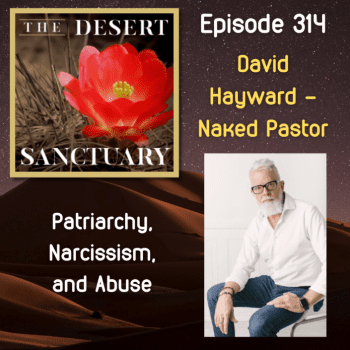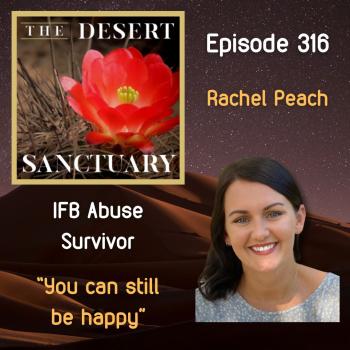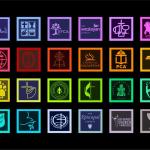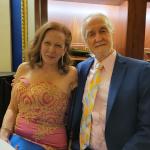An Open Letter to Christians
RE: Deconstruction

Dear Christian,
Some of you may just be realizing that many of us are deconstructing our faith. We noticed that you seem to be confused by this, so I thought I would clarify a couple of points around the usual statements I hear from those in organized religion.
Misconception 1 – Deconstructionists want to sin more.
I understand why you think this way, especially when everything that you disagree with is considered a sin; then, it isn’t hard to classify everyone outside your bubble as sinful or demonic or whatever label you want to attach to them.
In deconstruction circles, I notice that once people are free of the tyranny of organized religion, they tend to live more authentic lives and be better people because their lives are better outside of organized religion than they were within. I know this is hard to understand when all of your leaders are routinely “falling from grace,” but don’t assume that just because someone is different from you, they are more evil or more like your leaders.
Misconception 2 – because you disagree, you are bitter.
Most Christians are not allowed to have very many emotions. You assume that if someone strongly disagrees with your point of view, they are bitter because of what happened inside religion. To begin with, it might be fruitful for you to investigate that; if they are bitter about what you did to them, you should find out more about that, not less.
But generally, we are not bitter. Sometimes, we are angry because of what was done to us, and we are frustrated with organized religions’ refusal to move in positive directions to care for the least of these and care more about individuals than their corporations and organizations. Sometimes, we’re not angry enough because many of us have been abused and neglected, and you gaslighted us and used us as examples when we left.
We feel more emotions now, and we refuse to apologize for them.
Misconception 3 – because you disagree, you are theologically illiterate.
In most cases, the opposite is true. Most of us who are deconstructing are the ones who studied harder and asked more questions. We are not ignoring the Bible; we are refuting it, and through diligent study, we have abandoned some of the simple myths around it, such as that it is inerrant or the only source of truth.
It’s just exhausting to tell Christians that I studied the Bible meticulously for over 25 years. When Christians can’t accept that, they accused me of being from the wrong branch of Christianity and that Satan somehow caused me to stumble.
People in Christianity trust the pastor to disseminate God’s will for them. Most clergy are too busy running the organization, and their theology is mostly defending what they already assume to be true. Those of us who went further and looked deeper into the mysteries of that ancient book and those ancient practices are able to understand what Christianity hasn’t had time to investigate yet because they are running a business.
Misconception 4 – because you disagree, you are controlled by Satan.
Satan, or the devil, is the narrative created by people who needed a scare tactic to keep people in line and sell the doctrine they were promoting. However, a careful look at the evidence and any thoughtful stroll through the literature of the past help us understand that the “adversary” Character most likely evolved from an Egyptian idea and then the many adaptations and changes by authors like Dante along the way.
Groups like the Satanic Temple and the Church of Satan do not believe in an actual being. They are most generally groups that promote political change, especially in religious theocracy (i.e., 10 Commandment statutes). The fear of Hell and the mythos of Satan are not only used by the church to scare people, but they are also part of most people’s trauma when they decide to evolve past Christianity.
Misconception 5 – You are just trying to get attention.
This also couldn’t be further from the truth. Many of the people who left organized religion were wounded in various ways. The last thing we want is attention, especially from organized religious people who have the intent to harm us for challenging their worldview. We do realize that when we speak against a powerful organization like the industrial Christian machine, we will be demonized, attacked, and gaslighted in just about every area of our lives. Abuse survivors are telling the truth 95 percent of the time statistically. Still, instead of listening, the organization of religion will continue to attack anyone who dares to disagree with what they consider the perfect creed.
So, just Like any other abuse survivor, we know we will get attention, but that is not our primary intention. Our primary intention is to stop organizations, clergy, and church members from harming people. In many ways, we are taking some of the brunt of their anger so that systems will be inspired to change and victims will become survivors.
We often lose our livelihood and reputation to speak truth to power. But most of us believe that if there is anything redeemable about Christ, it is that this was his practice—to stand up for the “least of these.”
Summary
I started my deconstruction journey by assuming that God could handle my questions if he were real. So, I started asking questions. When I took a deep dive into things like hell (as eternal conscious torment) and penal substitutionary atonement, it wasn’t long before many other things started to reveal themselves. I knew I had to avoid the easy pad answers I had been giving for two decades and seek solid answers instead of proof texts.
The pastors and priests you’re currently listening to get paid to keep you from asking too many questions. They have set themselves up as filters for your beliefs, not because they have special information, but because they need you to be under control. It is what keeps the trains running.
Since the advent of the Internet, there are no longer any gatekeepers of information unless we allow them to. We now know, for instance, that many of the ideas of the Christian faith were borrowed from other religions and other parts of culture. We also know that the Christian worldview has evolved based on culture and the need to control.
My theology professor in seminary taught us to investigate the other side. Even though he is partially responsible for my old conservative worldview, he also gave me the tools to investigate for myself and come to my own conclusions. When I finally looked deeply into alternative theories, I discovered not a new orthodoxy but a glorious universe I could explore for the rest of my days.
Be where you are,
Be who you are,
Be at peace!
Karl Forehand
My Top 10 Suggestions for Theologians
Was Jesus well-known in the 1st Century?

Karl Forehand is a former pastor, podcaster, and award-winning author. His books include Out into the Desert, Leaning Forward, Apparent Faith: What Fatherhood Taught Me About the Father’s Heart, The Tea Shop, and Being: A Journey Toward Presence and Authenticity. He is the creator of The Desert Sanctuary podcast and community. He has been married to his wife Laura for 35 years and has one dog named Winston. His three children are grown and are beginning to multiply! You can read more about the author here.














